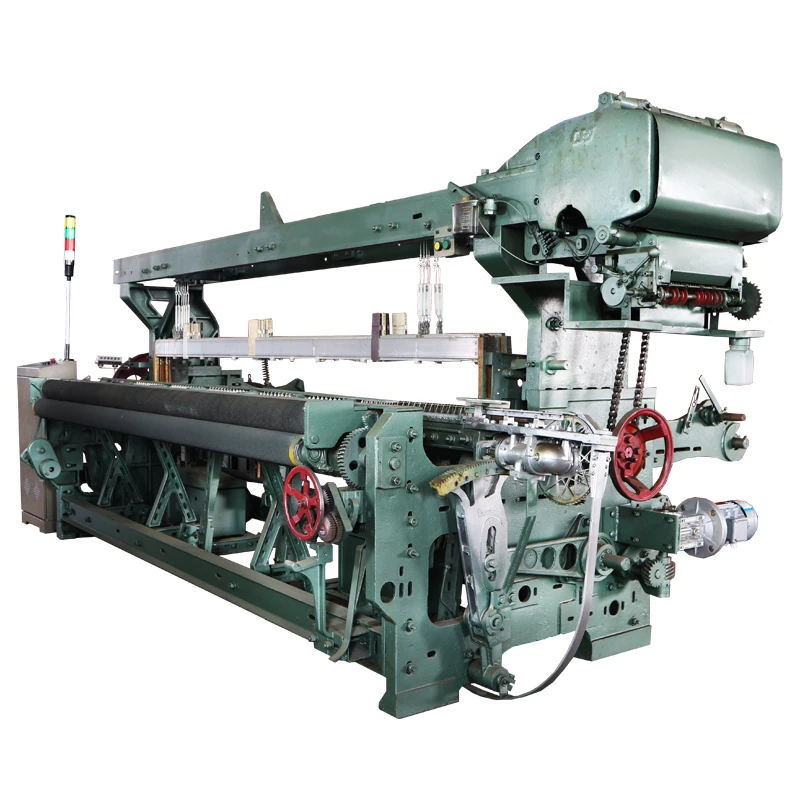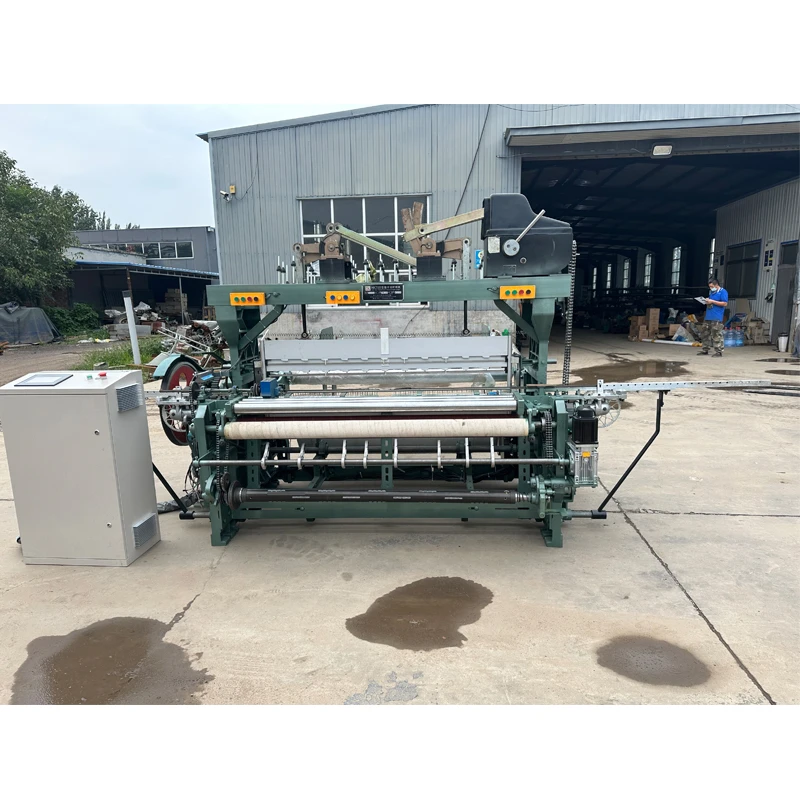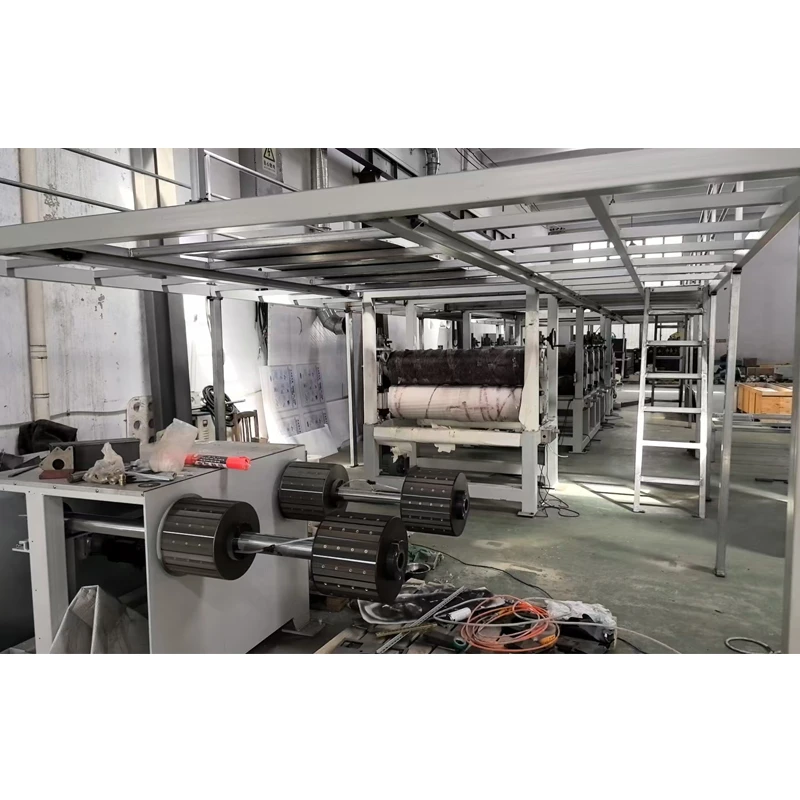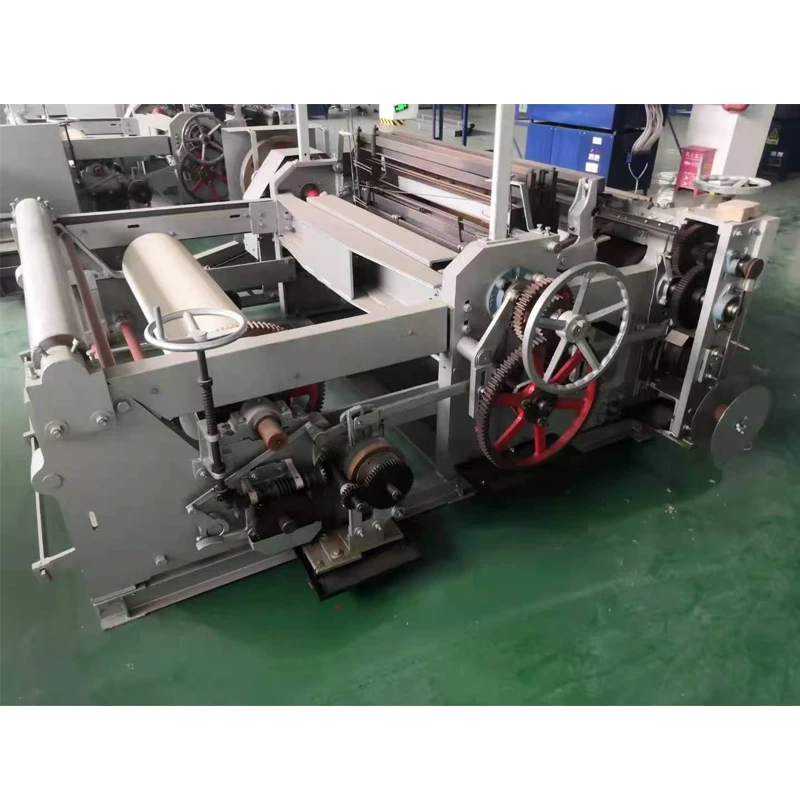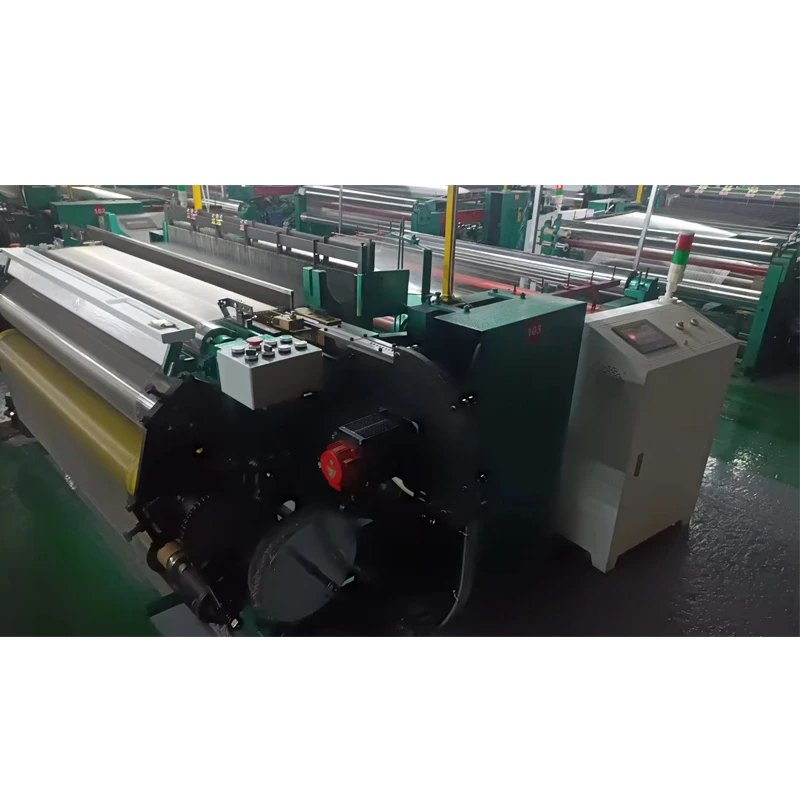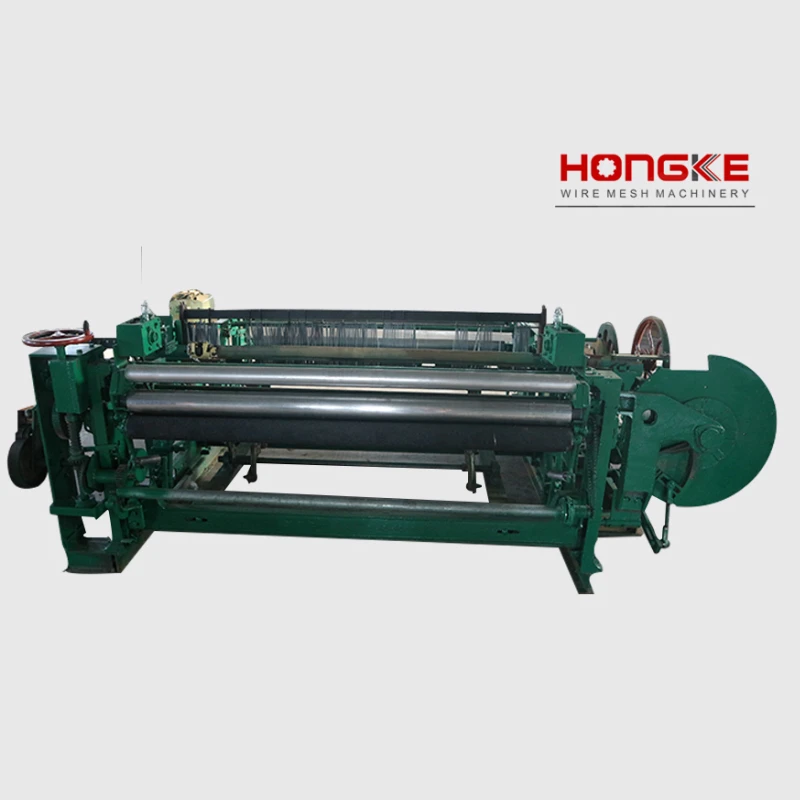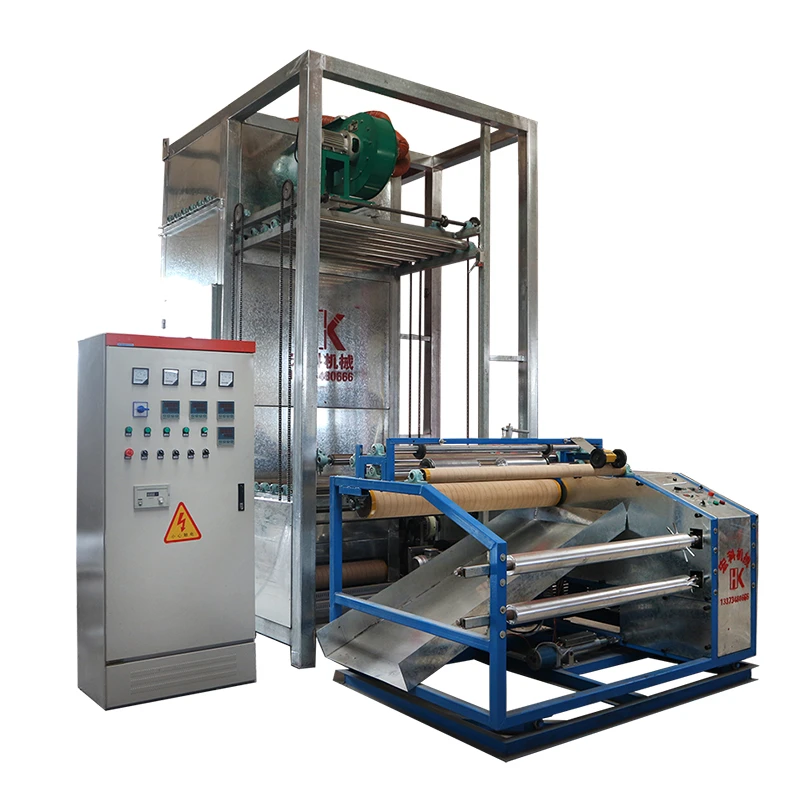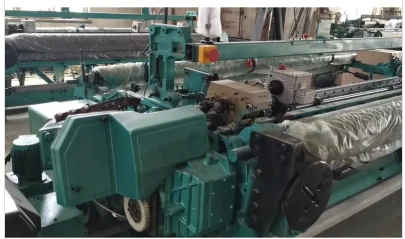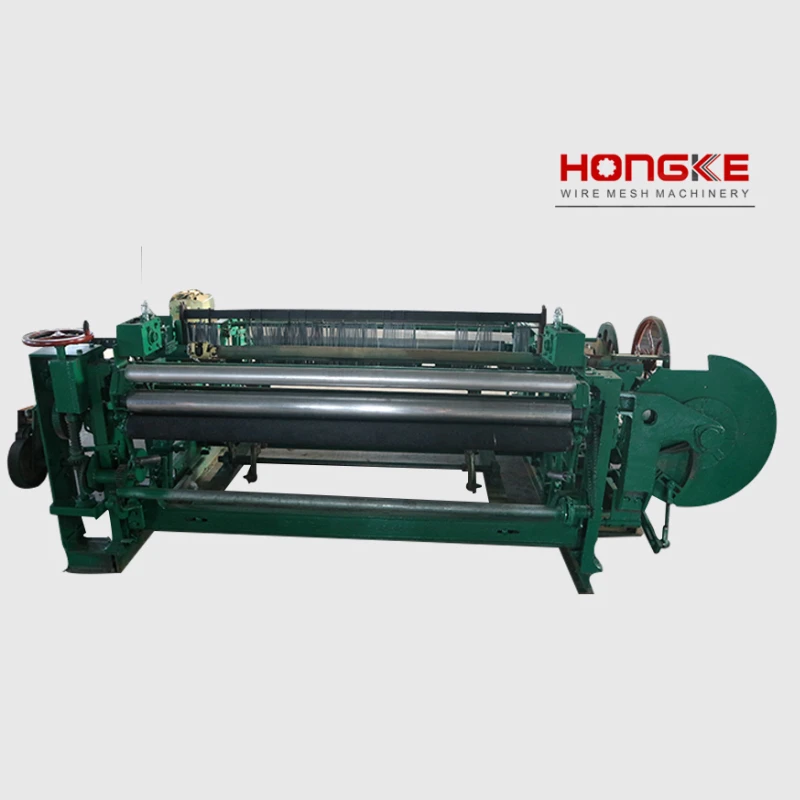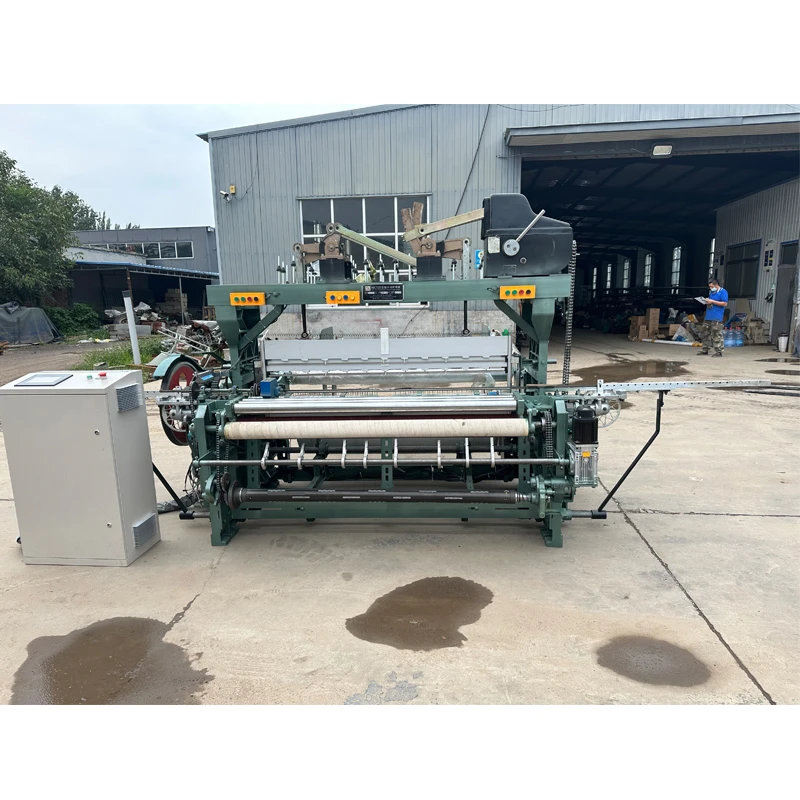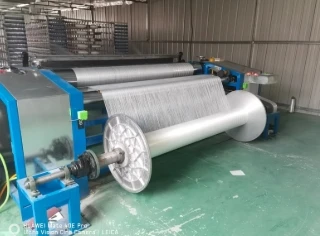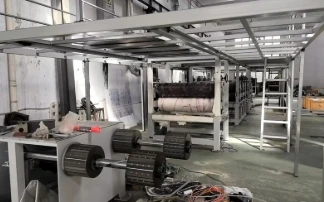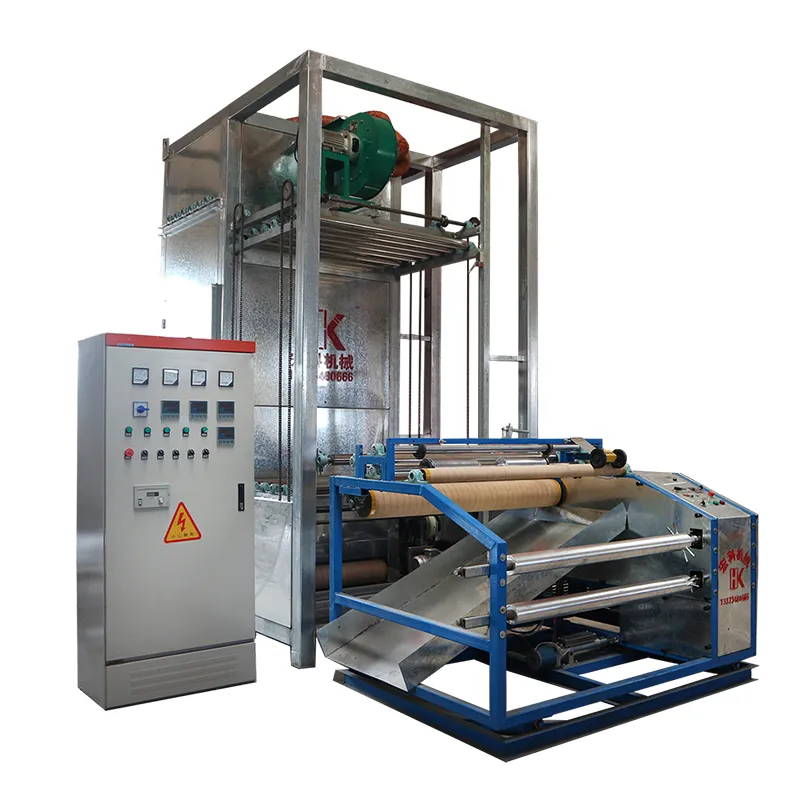
The global demand for fiberglass products, from construction reinforcement to advanced composite materials, underscores the critical role of robust and efficient manufacturing solutions. At the heart of this industry lies the Fiberglass Mesh Machine, a cornerstone technology enabling the precise and high-volume production of fiberglass mesh. This comprehensive guide delves into the intricacies of these machines, exploring industry trends, technical capabilities, application versatility, and the underlying factors that define a superior production line.
Industry Trends and the Evolution of Fiberglass Mesh Production
The market for fiberglass mesh is experiencing dynamic growth, driven by an escalating need for durable, lightweight, and corrosion-resistant materials across various sectors. Key trends shaping the industry include:
- Automation and Smart Manufacturing: The integration of IoT, AI, and advanced robotics is transforming fiberglass mesh machine operations, leading to higher precision, reduced labor costs, and predictive maintenance capabilities. This shift enhances overall equipment effectiveness (OEE) and reduces downtime.
- Sustainability Initiatives: A growing emphasis on environmentally friendly production processes and recyclable materials is pushing manufacturers to develop more energy-efficient and waste-reducing fiberglass mesh production line solutions.
- High-Performance Material Demands: As new applications emerge in specialized fields like aerospace and high-performance concrete, there's a drive for fiberglass mesh weaving machine technology capable of handling finer deniers and creating meshes with superior tensile strength and alkali resistance.
- Customization and Niche Markets: Manufacturers are increasingly seeking flexible fiberglass mesh machine setups that can adapt to varying mesh sizes, coating requirements, and material compositions, catering to bespoke client needs.
The future of fiberglass mesh production is undoubtedly tied to innovation, efficiency, and adaptability, with the fiberglass mesh machine at the forefront of this evolution.
Technical Parameters and Performance Benchmarks
Understanding the technical specifications of a fiberglass mesh machine is crucial for assessing its suitability for specific production requirements. These parameters directly influence output quality, production speed, and operational efficiency.
Key Technical Parameters of Fiberglass Mesh Machines
Below is a table summarizing typical technical parameters for advanced fiberglass mesh machine models. These figures represent the capacity and capabilities often found in high-performance units designed for industrial-scale production.
| Parameter | Description | Typical Range/Value | Impact on Production |
|---|---|---|---|
| Weaving Speed (PPM) | Picks Per Minute – the number of weft threads inserted per minute. | 600-800 PPM (basic) to 1200-1500 PPM (advanced) | Directly impacts daily mesh output volume. Higher PPM means more production. |
| Mesh Width (mm) | Maximum width of the fiberglass mesh that can be produced. | 1000 mm to 2400 mm (or custom widths) | Determines the versatility for different applications; wider mesh means less seaming for large areas. |
| Mesh Size Range (mm) | Minimum and maximum opening size of the mesh squares. | 2x2 mm to 10x10 mm (standard); finer or coarser available | Critical for application; e.g., small mesh for plaster reinforcement, larger for filtration. |
| Yarn Count Range (Tex) | The range of fiberglass yarn fineness the machine can handle. | 33 Tex to 4800 Tex (or higher) | Influences mesh strength and flexibility. Proper yarn warping machine and fiberglass wrapping machine are essential here. |
| Installed Power (kW) | Total electrical power required for operation. | 15 kW - 40 kW (depending on size & features) | Indicates energy consumption and operational cost. |
| Production Efficiency (%) | Ratio of actual output to theoretical maximum output. | >90% (for well-maintained, modern machines) | A measure of operational effectiveness, influenced by automation and reliability. |
| Weft Insertion Method | Mechanism for inserting horizontal threads. | Rapier, Air Jet, Water Jet | Rapier is common for fiberglass mesh due to strength and versatility. |
| Leno Selvedge Formation | Method for reinforcing mesh edges. | Tuck-in Selvedge, Melt-cut Selvedge | Ensures mesh stability and prevents unraveling, especially important for construction applications. |
These parameters, when optimally configured, define a powerful fiberglass mesh machine capable of meeting diverse market needs. Furthermore, the integration with other components of a complete fiberglass mesh production line, such as the yarn warping machine for preparing the warp yarns and the fiberglass wrapping machine for packaging, ensures seamless and efficient end-to-end manufacturing.

Application Scenarios and Industry Impact
The versatility of fiberglass mesh, produced by advanced fiberglass mesh machine technology, makes it an indispensable material across a myriad of industries. Its unique properties – high tensile strength, alkali resistance, fire resistance, and dimensional stability – lend themselves to diverse applications.
- Construction and Building Materials: This is the primary application. Fiberglass mesh is extensively used for external wall insulation systems (EIFS), plaster reinforcement, crack prevention in concrete, and waterproofing layers. Its ability to reinforce cement and plaster significantly enhances the durability and lifespan of structures, making buildings more resilient to environmental stresses.
- Filtration and Separation: Due to its precise weave and chemical inertness, fiberglass mesh is employed in various filtration systems, including air filters, liquid filters, and industrial strainers. The controlled mesh size produced by the fiberglass mesh weaving machine ensures efficient particle separation.
- Abrasives Reinforcement: Fiberglass mesh provides crucial reinforcement for grinding wheels and abrasive discs, preventing shattering and enhancing safety during high-speed operations.
- Composite Materials: As a reinforcing material in various composites, fiberglass mesh is used in the production of fiberglass reinforced plastics (FRP) for boat hulls, automotive parts, and industrial components, where strength-to-weight ratio is critical.
- Road Construction: Geo-grids made from fiberglass mesh are utilized in asphalt reinforcement to prevent cracking and extend the lifespan of roads, especially in areas subjected to heavy traffic or extreme temperatures.
- Agricultural Applications: Used in greenhouse shading nets, insect screens, and crop protection, leveraging its durability and UV resistance.
The direct impact of a reliable fiberglass mesh machine in these sectors translates to improved product quality, enhanced structural integrity, and sustainable manufacturing practices, contributing significantly to global infrastructure and industrial development.
Technical Advantages of Advanced Fiberglass Mesh Machines
Modern fiberglass mesh machine designs offer significant technical advantages over older models, contributing to higher productivity, better quality, and reduced operational costs. These advantages are a direct result of continuous innovation in mechanical engineering, automation, and material science.
- High Precision Weaving: Utilizing advanced control systems and precise tensioning mechanisms, contemporary machines ensure uniform mesh opening sizes and consistent weft insertion, crucial for applications requiring high dimensional stability.
- Enhanced Durability and Lifespan: Built with high-grade materials (e.g., hardened steel alloys through CNC machining, precision casting) and robust engineering, these machines are designed for continuous operation with minimal wear and tear. Their components are often rated for millions of cycles, significantly extending their service life beyond two decades with proper maintenance.
- Energy Efficiency: Optimized motor drives (often servo-driven) and intelligent power management systems reduce energy consumption per unit of output, contributing to lower operating costs and a smaller carbon footprint. This is a critical advantage for manufacturers facing rising energy prices.
- Automated Control and Monitoring: Integrated PLCs (Programmable Logic Controllers) and HMI (Human-Machine Interface) systems allow for precise control over weaving parameters, real-time monitoring of production status, and automated fault diagnosis, minimizing human error and maximizing uptime.
- Versatility in Production: Capable of producing a wide range of mesh sizes and handling different yarn types, including alkali-resistant (AR) fiberglass and E-glass, allowing manufacturers to diversify their product offerings. The ability to quickly change over production parameters is a key differentiator.
- Reduced Maintenance Requirements: Features like centralized lubrication systems, modular designs, and accessible components simplify maintenance, reducing downtime and the need for specialized technicians.
- Superior Product Quality: The combination of precise weaving, controlled resin application (if integrated), and consistent drying ensures the final fiberglass mesh meets stringent international standards, such as ISO 9001 for quality management and relevant ASTM/EN standards for material properties. Our fiberglass mesh machine solutions consistently deliver products that pass critical tests for tensile strength (e.g., ASTM D5034, EN 13496), alkali resistance (e.g., EN 13496 Annex B), and fire resistance.
These technical advantages not only enhance the performance of the fiberglass mesh machine itself but also directly translate into superior end products that meet the rigorous demands of various industries, such as petrochemical, metallurgy, and water supply/drainage, where our products excel in applications requiring strong, corrosion-resistant, and durable reinforcement.
Manufacturer Comparison and Selection Criteria
Choosing the right fiberglass mesh machine manufacturer is as critical as selecting the machine itself. A reliable manufacturer provides not just equipment, but also expertise, support, and long-term partnership. When evaluating potential suppliers for a fiberglass mesh weaving machine or a complete fiberglass mesh production line, consider the following:

- Industry Reputation and Experience: Look for manufacturers with a proven track record, extensive experience (e.g., over 20 years in the field), and positive client testimonials. Established players often have deeper engineering expertise and understand specific industry challenges.
- Technological Innovation: Assess their commitment to R&D. Do they offer the latest automation features, energy-saving technologies, and adaptive weaving capabilities? A forward-thinking manufacturer will help you stay competitive.
- Quality and Certifications: Verify if their manufacturing processes adhere to international quality standards such as ISO 9001. Enquire about component origins and whether critical parts are sourced from reputable suppliers (e.g., Siemens, Schneider, SKF).
- After-Sales Service and Support: This is paramount. Does the manufacturer offer comprehensive installation, commissioning, training, and readily available spare parts? What is their response time for technical issues? A strong global service network is a significant advantage.
- Customization Capabilities: Can they tailor a fiberglass mesh machine or a full fiberglass mesh production line to your specific requirements, including unusual mesh sizes, coating applications, or integration with existing systems?
- Client References and Case Studies: Request to speak with existing clients or review detailed application cases. Real-world feedback provides invaluable insight into a manufacturer's reliability and performance.
- Warranty and Guarantees: Understand the warranty period for the machine and its components, as well as any performance guarantees offered.
- Cost-Benefit Analysis: While initial purchase price is a factor, consider the total cost of ownership (TCO), including energy efficiency, maintenance costs, expected lifespan, and potential ROI. A higher upfront investment in a superior fiberglass mesh machine often yields better long-term returns.
Custom Solutions and Tailored Production Lines
Recognizing that every client's needs are unique, leading fiberglass mesh machine manufacturers offer highly customized solutions. This goes beyond just adjusting machine parameters; it involves designing an entire fiberglass mesh production line that integrates seamlessly with existing infrastructure and meets specific output, quality, and material requirements.
Customization options can include:
- Specific Mesh Dimensions: Developing weaving machines capable of producing non-standard mesh widths or very fine/coarse mesh sizes.
- Integrated Coating and Drying Systems: Tailoring the production line to incorporate precise polymer coating (e.g., acrylic, styrene-butadiene) and efficient drying ovens, crucial for enhancing the mesh's alkali resistance and overall durability.
- Automated Cutting and Winding: Implementing specific automated cutting mechanisms (hot or cold) and precision winding machines to prepare rolls of mesh according to client specifications, minimizing labor and waste.
- Material Handling Solutions: Designing bespoke material feeding systems, including specialized creels for the yarn warping machine and automated loading/unloading mechanisms for the finished mesh rolls, optimizing material flow and reducing manual intervention.
- Advanced Monitoring and Control: Integrating sophisticated SCADA (Supervisory Control and Data Acquisition) systems for comprehensive real-time data analysis, predictive maintenance alerts, and remote diagnostics, ensuring maximum uptime and operational transparency.
- Turnkey Project Management: Providing end-to-end solutions from initial consultation and factory layout design to installation, commissioning, and staff training. This holistic approach ensures a smooth transition and optimal performance of the entire fiberglass mesh production line.
For example, a client specializing in high-performance external insulation systems might require a fiberglass mesh machine capable of producing mesh with exceptional alkali resistance and a specific coating thickness, coupled with a high-speed slitting system. Another client focused on filtration might need a machine that can handle extremely fine yarns and produce mesh with very tight, uniform apertures. Our engineers work closely with clients to understand these nuances, designing a system that is not just a machine, but a strategic asset.
Real-World Application Cases and Client Success Stories
The true measure of a fiberglass mesh machine's excellence lies in its performance in diverse real-world applications. Our machines have been instrumental in numerous projects globally, showcasing their reliability, efficiency, and ability to produce high-quality fiberglass mesh for critical applications.
- European EIFS Project: A leading European construction material supplier invested in our advanced fiberglass mesh weaving machine line for their External Insulation Finishing Systems (EIFS) products. The client reported a 25% increase in production output and a significant reduction in material waste due to the machine's precise tension control and automated cut-off features. The mesh produced met stringent EU standards for alkali resistance and tensile strength, contributing to improved building energy efficiency across thousands of residential and commercial structures.
- Middle East Petrochemical Plant: For a major petrochemical complex in the Middle East, our specialized fiberglass mesh machine was integrated into a larger system for producing corrosion-resistant pipe wraps and tank linings. The mesh, manufactured with specific heat-set properties and a robust coating, provided superior protection against chemical degradation and extreme temperatures, drastically extending the lifespan of critical infrastructure components in a highly corrosive environment. This demonstrated the machine's adaptability to demanding industrial applications.
- North American Infrastructure Development: In a large-scale highway expansion project in North America, fiberglass geo-grids manufactured on our fiberglass mesh production line were extensively used for asphalt reinforcement. The machine's capability to produce wide-format, high-strength mesh with consistent quality was crucial for ensuring the longevity and stability of the new road networks, reducing maintenance cycles and associated costs over decades. The robustness of the fiberglass mesh machine minimized downtime during continuous 24/7 operation.
These examples illustrate how our fiberglass mesh machine solutions provide tangible benefits, delivering products that enhance structural integrity, resist harsh environments, and contribute to long-term sustainability across various sectors.
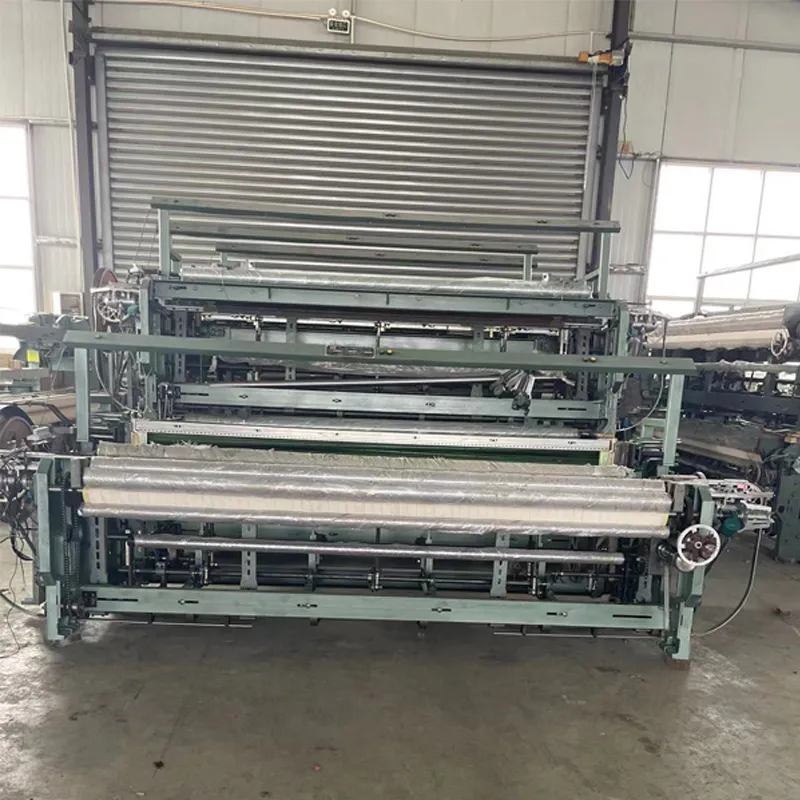
Process Flow of Fiberglass Mesh Manufacturing
The production of fiberglass mesh on a specialized fiberglass mesh machine involves a series of meticulously controlled steps, transforming raw fiberglass yarn into a finished, coated mesh product. This process ensures the mesh achieves its desired structural integrity, dimensional stability, and protective properties.
Below is a detailed breakdown of the typical manufacturing process, from raw material to finished product:
- Yarn Preparation (Warping):
- Process: Raw fiberglass rovings (continuous filaments) are loaded onto a yarn warping machine. This machine systematically winds individual yarns onto a large beam, known as the warp beam. Each yarn is maintained under precise, uniform tension to prevent breakage and ensure consistent weaving later.
- Key Node: The creel where the rovings are held and the tensioning units are critical for yarn integrity.
- Purpose: To create a parallel array of warp yarns of specific length and tension, ready for the weaving process.
- Weaving (Mesh Formation):
- Process: The warp beam is then mounted onto the fiberglass mesh weaving machine. Weft yarns (crosswise yarns) are inserted horizontally through the warp yarns using a rapier system, air jet, or water jet, creating the mesh structure. The machine meticulously interlaces these yarns at precise intervals to form the desired mesh opening size (e.g., 4x4mm, 5x5mm).
- Key Node: The shedding mechanism (which separates warp yarns for weft insertion), the weft insertion device, and the beating-up mechanism (which pushes the weft yarn into place) are central.
- Purpose: To form the raw fiberglass mesh fabric with specific dimensions and structural integrity.
- Inspection of Raw Mesh:
- Process: The newly woven raw mesh fabric is visually inspected for defects such as broken yarns, uneven weave, or inconsistencies in mesh size. Automated optical inspection systems are often used for high-speed detection.
- Key Node: Inspection stations with backlighting or vision systems.
- Purpose: To identify and address any weaving imperfections before further processing, ensuring quality control.
- Coating Application:
- Process: The raw fiberglass mesh is fed through a coating bath, where it is impregnated with a polymer emulsion (e.g., acrylic, styrene-butadiene, or a specialized alkali-resistant formulation). Rollers or doctor blades ensure uniform coating thickness.
- Key Node: The coating bath, precise metering pumps, and roller system.
- Purpose: The coating provides alkali resistance (crucial for cement-based applications), improves tensile strength, enhances dimensional stability, and prevents yarn slippage.
- Drying and Curing:
- Process: After coating, the mesh passes through a multi-zone drying oven, where controlled heat (typically 150-200°C, depending on the polymer) evaporates the solvent/water and cures the polymer coating. This process sets the coating permanently.
- Key Node: Temperature-controlled drying chambers with efficient air circulation.
- Purpose: To dry the mesh and cross-link the polymer coating, achieving optimal physical and chemical properties.
- Slitting and Winding:
- Process: Once dried and cured, the wide mesh roll is transported to an automatic slitting machine, which cuts it into narrower rolls of specified widths (e.g., 1 meter, 1.2 meters). These narrower rolls are then precisely wound onto cores.
- Key Node: High-precision slitting blades (hot or cold) and automated winding stations with tension control.
- Purpose: To prepare the finished mesh rolls for packaging and distribution according to customer requirements.
- Final Inspection and Packaging:
- Process: Each finished roll undergoes a final quality check for dimensions, weight, coating consistency, and overall appearance. The rolls are then wrapped, labeled, and prepared for shipment. A fiberglass wrapping machine is often used for efficient packaging.
- Key Node: Quality control checkpoints, weighing scales, and packaging stations.
- Purpose: To ensure the final product meets all specifications and is ready for market.
Throughout this entire process, rigorous inspection standards such as ISO 9001 for quality management and relevant ASTM (e.g., ASTM D5034 for breaking strength) or EN (e.g., EN 13496 for EIFS applications) standards are applied. The materials used in the fiberglass mesh machine itself, such as high-grade steel for frames and precision-machined components via CNC machining, ensure long service life (often exceeding 25 years with proper maintenance) and stable operation. Products manufactured using this process demonstrate superior performance in applications across industries like petrochemicals (for corrosion resistance), metallurgy (for high-temperature reinforcement), and water supply/drainage (for durable filtration and reinforcement).
Product Details: Fiberglass Mesh Machine - https://www.aphkmachinery.com/fiberglass-mesh-machine.html
Our fiberglass mesh machine is engineered to deliver unparalleled performance and reliability in the production of high-quality fiberglass mesh. Designed with precision and built to last, it represents the pinnacle of modern weaving technology.
- Core Product Name: Fiberglass Mesh Machine
- Product URL: https://www.aphkmachinery.com/fiberglass-mesh-machine.html
- Manufacturing Process Highlights: Our machines leverage advanced manufacturing techniques to ensure exceptional durability and precision.
- High-Precision Casting: Critical structural components are produced via advanced casting processes, ensuring material integrity and dimensional stability under continuous operation.
- Forging for Strength: Key stress-bearing parts, such as shafts and gears, undergo specialized forging processes, enhancing their strength, toughness, and resistance to fatigue.
- CNC Machining Excellence: All intricate and high-tolerance components, including weaving mechanisms and tensioning systems, are precision-machined using state-of-the-art CNC (Computer Numerical Control) technology. This guarantees unparalleled accuracy, smooth operation, and extended lifespan, minimizing wear and tear.
- Automated Welding: Structural frames and major assemblies utilize robotic and automated welding for superior joint strength and consistency.
- Material Selection: Only premium-grade materials are used for construction, including high-tensile steel alloys for the main frame, hardened tool steel for critical wearing parts, and corrosion-resistant coatings for exposed surfaces. This ensures resilience in demanding industrial environments.
- Inspection Standards: Every fiberglass mesh machine undergoes rigorous multi-stage quality control.
- ISO 9001 Certified Manufacturing: Our entire production facility and processes adhere strictly to ISO 9001 quality management system standards, guaranteeing consistent quality and continuous improvement.
- ANSI/ASTM Compliance: Components and final assembly are tested against relevant ANSI (American National Standards Institute) and ASTM (American Society for Testing and Materials) standards for mechanical properties, dimensional accuracy, and performance.
- CE Certification: Our machines comply with European safety, health, and environmental protection directives, carrying the CE mark.
- Estimated Service Lifespan: With proper maintenance and operation, our fiberglass mesh machine has an expected service life of 20-25 years or more, offering an excellent return on investment over its operational span.
- Applicable Industries and Advantages: Our machines produce fiberglass mesh that is critical for various demanding industries:
- Petrochemical: The mesh provides robust reinforcement for anti-corrosion linings in tanks, pipes, and process equipment, significantly extending their operational life and ensuring safety in aggressive chemical environments. Its alkali and acid resistance is paramount here.
- Metallurgy: Used for high-temperature filtration and reinforcement in molten metal applications, where its thermal stability and strength are invaluable.
- Water Supply & Drainage: Employed in water treatment filter media, ground stabilization for pipelines, and reinforcement for concrete structures in water infrastructure, benefiting from its corrosion resistance and durability in moist environments.
- Construction: A primary application, where its advantages include energy efficiency (as part of EIFS), superior crack prevention in facades, and enhanced structural integrity in concrete and plaster. The mesh also acts as an excellent barrier against moisture and environmental degradation.
- Typical Application Scenarios: Our fiberglass mesh offers specific advantages:
- Energy Savings: When integrated into External Wall Insulation Systems (EIFS), the mesh reinforces the insulation layers, preventing cracks and ensuring the long-term effectiveness of thermal envelopes, directly contributing to energy savings in buildings.
- Corrosion Protection: In chemical plants and coastal regions, fiberglass mesh used as reinforcement for protective coatings provides unparalleled resistance to corrosive agents, reducing maintenance costs and ensuring operational continuity.
- Structural Reinforcement: In bridges, tunnels, and high-rise buildings, the mesh enhances the tensile strength of concrete and plaster, making structures more resilient to seismic activity and everyday stresses.
Frequently Asked Questions (FAQ) about Fiberglass Mesh Machines
Here are answers to some common professional questions regarding fiberglass mesh machine technology and its applications:
- What is the typical output per day for a standard Fiberglass Mesh Machine?
A modern fiberglass mesh machine can typically produce between 10,000 to 20,000 square meters of finished mesh per 24-hour cycle, depending on the mesh size, machine speed (PPM), and operational efficiency. Larger machines or those running finer mesh sizes might yield more. - What types of fiberglass yarn can a Fiberglass Mesh Weaving Machine process?
A versatile fiberglass mesh weaving machine can process various types of fiberglass yarn, primarily E-glass (electrical grade glass, common for general purpose mesh) and AR-glass (alkali-resistant glass, essential for mesh used in cement and plaster to prevent degradation). It can also handle different yarn counts (deniers/tex) to produce meshes of varying strengths. - How does the coating process enhance the durability of fiberglass mesh?
The polymer coating (e.g., acrylic, styrene-butadiene) applied by the fiberglass mesh machine serves several critical functions: it provides alkali resistance, protecting the fiberglass from degradation in cementitious environments; it binds the individual fibers and yarns together, preventing slippage and increasing tensile strength; and it enhances dimensional stability, ensuring the mesh retains its shape under stress. - What are the key maintenance requirements for a Fiberglass Mesh Machine?
Key maintenance includes regular lubrication of moving parts, inspection and replacement of wear components (e.g., rapier tapes, guides, blades), cleaning of dust and debris, checking electrical connections, and periodic calibration of tensioning and control systems. Proactive maintenance based on manufacturer guidelines (e.g., daily, weekly, monthly checks) is crucial for extending the machine's lifespan and ensuring optimal performance. - Can a single Fiberglass Mesh Production Line produce different mesh sizes?
Yes, most modern fiberglass mesh production line systems are designed for flexibility. By adjusting parameters such as weft insertion speed, yarn feed, and reed density, a single machine can produce a range of mesh sizes (e.g., from 2x2 mm to 10x10 mm). Some machines also allow for quick changeovers of warp beams for different widths. - What is the significance of "Leno Selvedge" in fiberglass mesh production?
Leno selvedge is a specific weaving technique used at the edges of the fiberglass mesh to prevent fraying and unraveling. It involves a special weave where warp yarns twist around the weft yarns, creating a strong, secure edge. This is crucial for maintaining the integrity of the mesh during handling, installation, and long-term application, especially in construction reinforcement. - What quality control measures are in place for the output of a Fiberglass Mesh Machine?
Quality control measures include continuous online monitoring of mesh width, weight per square meter, and mesh opening size. Post-production, samples are subjected to laboratory tests for tensile strength (both before and after alkali immersion), elongation, and coating adhesion. Adherence to international standards like ISO, ASTM, and EN is a benchmark for quality.
Our commitment to client support extends beyond the sale. We offer comprehensive training programs for your operators and maintenance staff, ensuring they are fully equipped to maximize the performance of your fiberglass mesh machine. Our global network of technicians is available for on-site support, troubleshooting, and scheduled maintenance. We guarantee a rapid response time for spare parts delivery to minimize any potential downtime.
Delivery Cycle: Typical delivery for a standard fiberglass mesh machine is 60-90 working days after order confirmation, depending on customization requirements. For complete fiberglass mesh production line solutions, this may extend to 120-180 working days. Exact timelines will be provided with your detailed quotation.
Quality Assurance & Warranty: Our fiberglass mesh machine products come with a comprehensive 12-month warranty from the date of commissioning or 18 months from the date of shipment, whichever comes first. This warranty covers manufacturing defects and component failures under normal operating conditions. Extended warranty options and long-term service contracts are also available.
The innovation and reliability of the fiberglass mesh machine are central to meeting the evolving demands of construction, industrial, and specialized material markets. As a leading provider, we are committed to delivering cutting-edge solutions that empower our clients to achieve superior product quality, enhance operational efficiency, and maintain a competitive edge in the global arena. Our extensive experience, adherence to stringent quality standards, and dedicated customer support ensure that investing in our machinery is an investment in long-term success.
References:
- Journal of Composite Materials: "Advancements in Weaving Technologies for Technical Textiles." Available at: https://journals.sagepub.com/doi/abs/10.1177/0021998319853966 (Example academic reference)
- Construction World Magazine: "The Role of Fiberglass Mesh in Modern Facade Systems." Available at: https://www.constructionworld.in/latest-news/building-materials/the-role-of-fiberglass-mesh-in-modern-facade-systems/14800/news.html (Example industry publication)
- European Organisation for Technical Approvals (EOTA) - Guideline for European Technical Approval of External Thermal Insulation Composite Systems with Rendering (ETICS): ETAG 004. (Referenced for standards, no direct link provided as it's typically a paid standard)

Pervious








